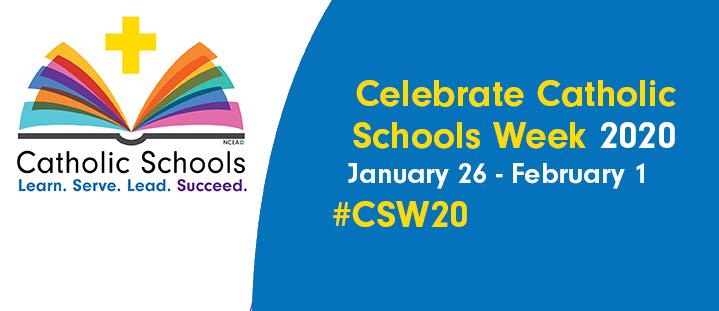Throughout Catholic Schools Week 2020, we'll be sharing some of our favorite Catholic Schools Week reflections that ACE graduates, team members, and friends have submitted over the years. The below reflection is from Jennifer Beltramo and was originally published in 2012.
Last week, as several "partners in mission" began arriving for an appreciation event, I anxiously wondered whether I should have prepared our student ambassadors more fully. "What should we say?" they had asked just two days earlier. "They already know that I believe in Catholic education," I had shared, "They want to know what you believe. What makes our school unique? What difference has it made in your life?" That was it, no further guidance, just lofty questions for twelve-year-olds to ponder.
The event began informally with students stationed throughout the room in front of posters depicting faith, academics, and service. I quietly walked among them, ready to support a student who was nervously lost for words or to redirect one who had veered into unexpected terrain. What I overheard, however, was far from awkward pauses or vague comments.
Instead, the students were giving witness to the beauty and transformative power of Catholic schools. As Andrew articulated the importance of our weekly celebration of the Eucharist, Alejandro explained how our school activities reflect the liturgical seasons throughout the year. While Jazmin shared how our school's Vincentian founders are models of service to the poor, Camila described her experiences of helping at Meals on Wheels, Midnight Mission, and Skid Row. In the midst of them all, Xiomara referred to objectives, Bloom's Taxonomy, rubrics, differentiation, and formative feedback as she outlined the benefits of multiple academic supports in preparation for high school. To my surprise, the students clearly understood the essence of a Catholic education.

It is evident that Catholic schools provide a unique environment to support and educate the whole child. The impact of this environment, however, goes beyond our students; it unifies and enriches every adult who serves in our buildings. Teaching is a ministry of service grounded in our faith. The faith community fostered by our schools not only unites us in a common mission but also allows us to support one another along the journey. Faith provides a lens for everything we do, serving as a guide not only for what we teach but how we teach it. Thus, academics become more than mere content; they become the avenue for each child to discover and develop his or her unique gifts in the service of others.
The ability to live and deepen our faith life through our service in Catholic schools is a true blessing. Yet it is also a humbling reminder that the mission is truly beyond us. We are one step along the journey; the future of our Church lies with the students we serve.
Recently, I was blessed to witness a glimpse of that future. Miguel, a secretly insecure eighth grader, was teaching a group of second graders to play basketball. As so often is the case, it wasn't what he was teaching but how that caught my attention. With each new skill, he recreated every support that had been provided for him by the adults in our school – clear modeling and scaffolding, feedback, affirmation, and, most importantly, constant reminders for them to see Christ in one another.
Looking for ways to celebrate your faculty, staff, and volunteers? Visit the NCEA's website for inspiration and ideas!
 Alliance for Catholic Education
Alliance for Catholic Education
